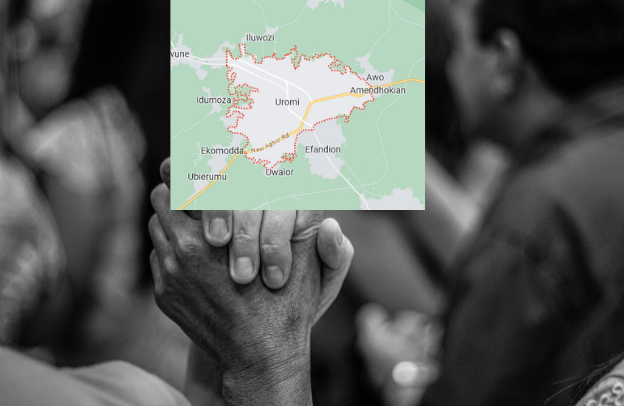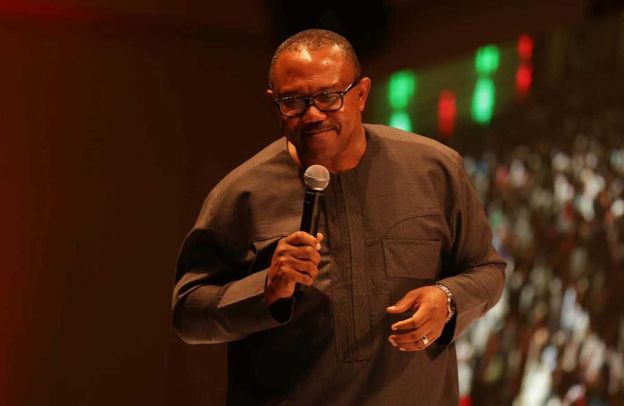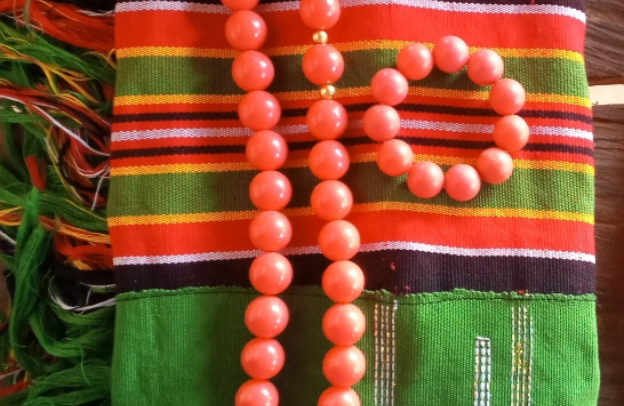Uromi And The Spirit Of Ubuntu By Austin Isikhuemen

Ubuntu is a Zulu word which means ‘humanity’. Other interpretations are ‘I am because we are’, ‘humanity towards others. There are various definitions of the word “Ubuntu”. The African Journal of Social Work defined ubuntu as:
A collection of values and practices that people of Africa or of African origin view as making people authentic human beings. While the nuances of these values and practices vary across different ethnic groups, they all point to one thing – an authentic individual human being is part of a larger and more significant relational, communal, societal, environmental, and spiritual world.
The spirit of Ubuntu is driven by collectivism rather than individualism. It energizes an individual to always think of the collective while making decisions or taking action. How will this help my neighbors and the community? Should I buy the most expensive car to show off my wealth or use the money to fund the renovation of a school and pay enrolment fees for indigent children so that the education tone of the entire village can be lifted, and ignorance diminished? A choice of the latter is ubuntu in action.
In Uromi language (Esan dialect of Edo Language), there are words that best describe the ubuntu spirit and philosophy. Akolu is one. Alu’negbe is another. So, it is across African societies. Therefore, though ubuntu is a Bantu language word, it is a practice that is Africa-wide.
My father’s neighbor
It is the spirit of ubuntu that drove my father’s neighbor, the late Mr. Igberase, to take me to his house and treat my dislodged elbow using local methodology without asking my father first. I had a dislocation while practicing the renowned Esan summersaulting acrobatics. Significantly, he did not even bother to let my father know he saw me with a dislocated elbow and had treated me. I was the one that told my parents when I got home.
Mr Okoria Omofoma used to be a nightmare of sorts to school children attempting to fight on their way from L. A. School, that later became part of the combined Amedokhian.
Primary School now delinked again as Idigun Primary School. He would lay in wait and catch them and use bulala to teach why not to fight on the way from school. He also did not spare the rod if you were found walking leisurely to school past 8 am. This same spirit of ubuntu made my father and several men in our village to send us with newly harvested yam and sometimes, firewood, to old widows in Amedokhian community during festival periods. Another example is the joint clearing of the paths to the farms and weeding and sweeping of the community’s open spaces weekly. Did they not, in those days of mud house building, jointly build houses for each other at no cost to the owner except for food and drinks? That was ubuntu in action!
I think with those few examples, I may have succeeded in explaining ubuntu and its practice in African societies, using my Amedokhian-Uromi experience. The motivation for this piece is to showcase how Uromi community and its people are using ubuntu spirit to drive development and rise above the government’s neglect and abdication of their responsibility over the years and several regimes.
By government, I do not mean just the current state government alone. The neglect of Uromi, or put mildly, the scant attention paid to the town and most parts of Edo Central Senatorial District, spans multiple state governments and governors. From the one who was our in-law with all his children bearing Esan blood in their veins, to the current governor that was virtually adopted by the Esan collective as their own and fought across valleys and mountains to give a second term at a time he was rejected by his own party.
Uromi have arisen as one people
As Uromi got neglected, its people have arisen as one, in the spirit of ubuntu pro-max as it were, to take their faith in their communal hands. Examples of what they have done are many, but I will draw attention to a few.
Before doing so, I would like to submit that this exposition of the Uromi situation is symptomatic of the entire Esanland. A couple of projects have been executed and are appreciated. The central Ekpoma road from Iruepken to Irrua junction makes Ekpoma a little less harrowing to small vehicles today. There are a few township roads, some less than kilometre long that have been tared and are being washed up by the first rains. One past state government constructed dual carriageways in Edo South and North with street lighting, but deliberately left out Edo Central from that infrastructure largesse.
The local government chairmen are also complicit in this neglect though sometimes they whine that their funds are sequestered by the powers that be at Osadebe Avenue. I do not believe them. For, before our very eyes, some who were simply bag carrying boys to political players became rich overnight, driving SUVs, building big houses while they could not even cut the grass does not repair a fallen signboard at the Local Government Secretariat!
Not even lighting could be provided at that secretariat or the Agba Road on which it stands with the police station, NSCDC, courts complex, LGEA Authority, INEC located on that road. What is the last word about the billions the state government published as having been mismanaged by the councils, especially the Esan Northeast? Swept under the proverbial carpet?
This is not to claim that there have not been a few lights in this dark governance at the LGA. We saw Barr. Yakubu’s sterling performance – roads and the housing estate (the best ever, in the people’s view), Oboh – Uromi market storey shops, and recently, Andy Egbadon’s 4-month stint – Uwalor road, several problematic culverts, lighting of the secretariat etc.
Let us talk about ubuntu.
Today, Uromi town (areas around Eguare, parts of Egbele, Okpujie, Efandion, Ewoyi, Oyomon, Okhenlen, Uwalor-Usogho etc) have all the streets names clearly engraved on reflective plates and mounted on galvanized poles. This project, executed by citizens that go by the name of Uromi Like Minds Initiative. Sons and daughters of Amedokhian quarters based in Lagos have done the same, naming the streets across the entire Amedokhian at their own cost. This ought to be a local government function and should have been done using the finances they collect from the federation or their internally generated revenue. But they failed the people and the people resorted to ubuntu.
Across the land, ultra-modern town halls are being built through communal or individual effort. Annoyingly, sometimes the same government officials who could not assist the community came to use these town halls for their campaigns and other events. There is the one Rt. Hon. Itulah spearheaded at Amedokhian named Omi Hall. At Ewoyi, a generous Uromi Prince, Cyprian Imobhio, an international businessman, built and furnished a beautiful townhall for the use of the people.
Chief Albert Iyorah, the Osobase of Uromi has recently built and handed over to his community a beautiful townhall/events. This is replicated throughout Uromi, and indeed, Esanland in general. Several people are installing solar streetlights, repairing roads, and providing water to their neighbors to alleviate their suffering and make life less traumatizing.
If you go to Okhenlen Road, it is currently impassable when it rains, and the road, tarred a few years ago is being washed off today. But take a drive through the area and you would think you are in the Gwarimpa sprawling estate in Abuja. Same goes for the EDPA area along Illushi/Ubiaja road. The quality houses being built, the sheer number and the frenetic pace of construction is exhilarating. But where is the government? Government presence is visible through its absence!
The road is, to put it mildly, impassable. Trailers carrying granite and cement and sand get stuck. Those who have finished their houses cannot live there due to lack of access to roads and security considerations. But where is their government? Sleeping at Osadebe Avenue or dreaming of a second Airport in the State so that Edo central can be flown over without bothering about its dilapidated and abandoned State and Federal roads! It figures.
Accident and Emergency Centre to the Uromi
An Uromi Son, Bishop Okpebholo built and donated an Accident and Emergency Centre to the Uromi General built by the Western Region Government in 1962. The Commissioner for health gave approval for the project to be done. The donor promised to personally fund the consumables for 100 years through his children and his Foundation even after he is gone.
Why was it abandoned by the government? Uromi sons and daughters and other Esan well-wishers globally reconstructed and furnished some of the old buildings in the hospital, built a beautiful perimeter wall and gate and no sign of government gratitude and counterpart projects at the hospital that was built for the entire Esanland. Why? Now, to enhance the security of Esanland, our people, in the absence of Federal government and State government action has embarked on the building of a Mobile Police Squadron Barracks at Uromi.
Funds are being mobilized from Esan groups and individuals and the first block, a storey building with offices, cells, armory etc., is being roofed. Approval for this project was obtained from the immediate past Inspector General of Police. Where is the government? But for the effort of Uromi Youths who erected a solid height control barricade, Dangote cement trucks and other heavy-duty lorries would have since made Uromi Mission Road, the main arterial road through the town dualized by Dr. (Arc) Mike Ononlememen as minister, totally impassable.
I could go on and on to discuss this spirit of ubuntu which is giving life to our aspirations. The government, for us is sleeping on duty and abandoning its responsibility to Uromi town. It is visible even in broadcasting where only radio stations in the Southeast were receivable until Esan Binoculars and, more recently, ACE FM 99.9 under trail transmission were established by individuals at Uromi. This write-up and ubuntu assessment were not done by a political opponent, lest sycophants, political jobbers and hangers-on jump into the fray.
There is no fray to jump into. I probably contributed to this government’s election than you did. We are all victims and if you do not know, you need to think again. We need our governments to seat up and not abandon their responsibilities to the people they promised heaven, leaving them wondering whether hell would not have been a better option.
27th June, 2023 – Austin Isikhuemen
Download the first chapter of The Storytelling Series: Beginners’ Guide for Small Businesses & Content Creators by Obehi Ewanfoh.





